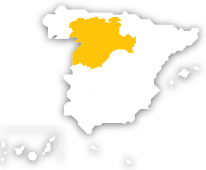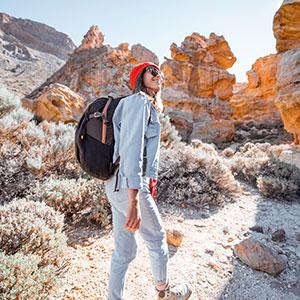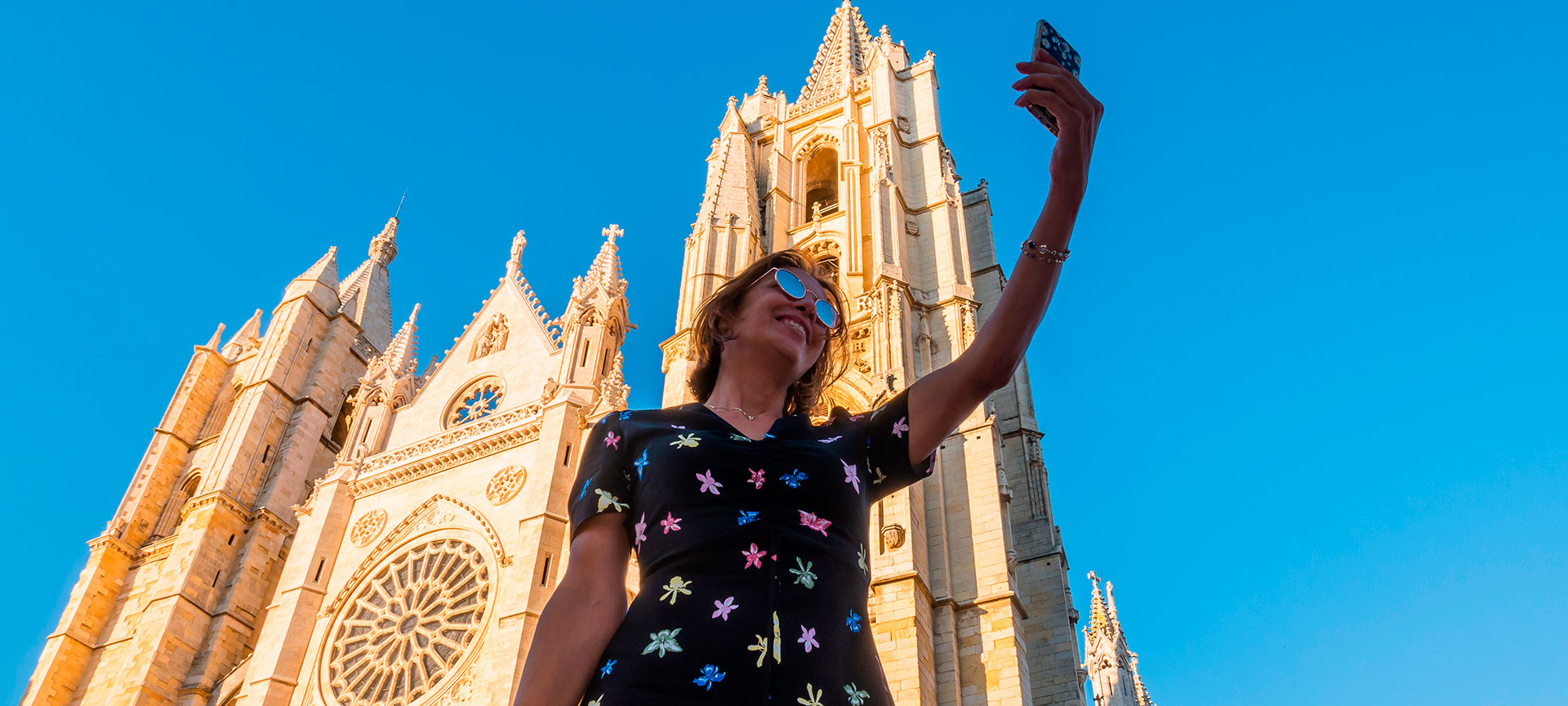
Castile and Leon is the largest autonomous community in Spain, making it the perfect choice for driving routes. Here you can find beautiful cities which are steeped in history and with extraordinary monuments such as the Aqueduct of Segovia or Burgos Cathedral. This selection of places will give you the inspiration you are searching for to spend a week enjoying this part of Spain.
Debe activar Javascript para poder utilizar este servicio
-
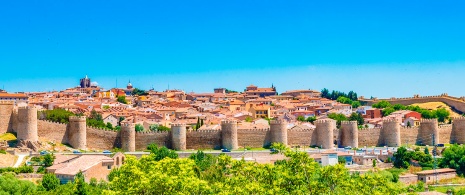
Day 1: Ávila province - From Arenas de San Pedro to Ávila
The start of the route is in the south of the province of Ávila, at Arenas de San Pedro. In this town you can find the Águila Cave. It is perfectly conserved and stretches for around one kilometre, reaching a depth of up to 50 metres. You can marvel at the karst topography of stalactites and stalagmites in a varying range of colours and sizes. Afterwards, you can venture into the city of Ávila, which takes approximately 90 minutes by car. There, you will be able to see its complete and monumental medieval wall , with a perimeter of 2,516 metres. The old city of Ávila inside the walls is listed as a World Heritage Site. Step back in time on a trip through its streets.
-
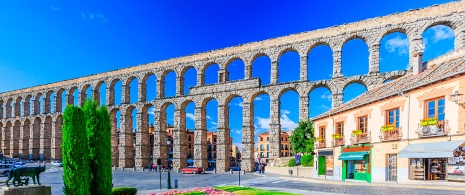
Day 2: Province of Segovia - From Segovia to Pedraza via La Granja de San Ildefonso
The second day of the route starts in the World Heritage City of Segovia. A highlight here is the Aqueduct, a masterpiece of Roman engineering built to carry water over 16 kilometres. You can also visit the Alcazar and the cathedral, to name just a few of the must-see sights. La Granja de San Ildefonso is located 10 kilometres from the city. It is a municipal monumental of outstanding beauty and where you will able to visit the Royal Palace and its spectacular Versailles-style gardens. On the return trip you will come to Pedraza, a medieval village that has been declared a monumental ensemble. Enter through the ancient walls and be amazed how well conserved the place is. You will feast your eyes on the old prison, stately homes, palaces and the Plaza Mayor square from the moment you arrive. It’s no wonder that this village belongs to “The most beautiful villages in Spain”” association.
-
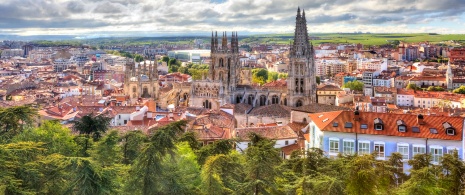
Day 3: Province of Burgos - From Burgos to the Atapuerca Mountains
The starting point for the third day of the driving route is the city of Burgos. Stroll through its streets and find everything they have to offer: churches featuring art, palaces, etc. Its Gothic cathedral is the only one in Spain to have been declared a UNESCO World Heritage Site. To end the day surrounded by history, head to the the Archaeological Site of Atapuerca, also listed as a World Heritage Site. In 1992, the sima de los huesos (Pit of Bones) remains were found there (pre-Neanderthal and descendants of the oldest Europeans found so far), and human remains over 900,000 years old that defined a new species: Homo Antecessor. Remains of other hominid species were also discovered there, such as Homo sapiens. At the Museum of Human Evolution, in the city of Burgos, you can see over 200 original human fossil finds from the Archaeological Site of Atapuerca.
-
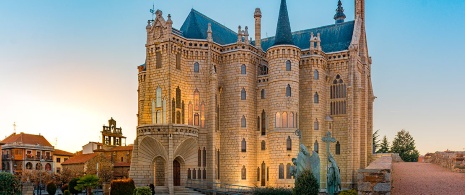
Day 4: León province - From León to Astorga
The fourth day of the route could starts in Leon. You will love its Gothic Cathedral with French influences. La Casa Botines, one of the few buildings created by Gaudí outside of Barcelona, is a must-visit. Between visits, you could relax and sample some of the excellent Spanish wines you can find in this area and some delicious tapas in the Húmedo district, very close to the cathedral.Astorga is one of the most visited places in Leon province. In fact, the Camino de Santiago passes through here. The Gaudí Palace is one of its most famous monuments. Lose yourself in the streets and soak up the atmosphere of this town with just over 10,000 inhabitants. You'll love it.
-
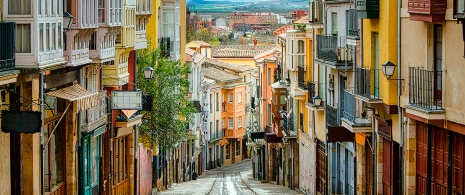
Day 5: Zamora province - From Puebla de Sanabria to Zamora
Puebla de Sanabria forms part of “The most beautiful villages in Spain”. Its medieval old town is exceptionally well-preserved, which gives it an extra special charm. The entire town, as well its wonderful monuments, like the Condes de Benavente Castle, will make you want to linger there.The fifth day of the route will also take you to the lovely city of Zamora. You can visit its castle, its stone bridge over the river Duero, the Church of Santiago del Burgo (from the end of the 12th century) or its Plaza Mayor, among other points of interest. Take advantage of some of its culinary specialities, such as its cheeses or the bacalao a la tranca, a cod dish with potatoes, garlic and paprika.
-
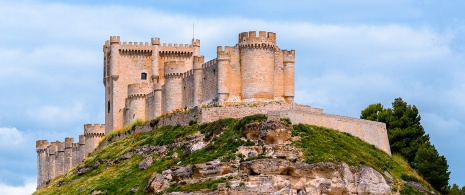
Day 6: Valladolid province - From Peñafiel to Valladolid
The route continues in Peñafiel, a small town steeped in history. It has been declared a historic-artistic site thanks to the Churches of Santa María and San Miguel de Reoyo, its convents and hermitages.What’s more, it forms one of the main axes of the Ribera del Duero Wine Route, making it the ideal stopping off place to sample this designation of origin, one of the most famous in Spain.Now in Valladolid, you will find yourself surrounded by photo worthy places. Visit the Pasaje Gutiérrez (a 19th century shopping arcade), stroll around the Plaza Mayor square or the Plaza del Viejo Coso (an ancient bullring) and take in the stunning cathedral, palace, churches and façades.
-
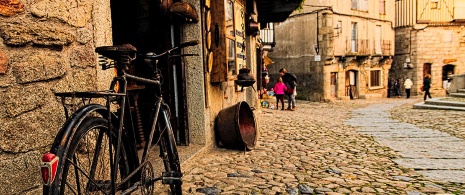
Day 7: Salamanca province - From Salamanca to La Alberca
The last day of the route starts in Salamanca, a city with an old quarter brimming with architectural marvels, like the super famous Plaza Mayor, built between 1729 and 1756; the university; Salamanca Cathedral, comprising the New Cathedral (Catedral Nueva) and the Old Cathedral (Catedral Vieja, which was supposed to be knocked down when the new one was built, but never was) or San Esteban Convent, to name but a few of the city’s iconic buildings. There are so many wonderful things to see in Salamanca, that you are bound to start planning a return visit to this World Heritage City. To end the route, La Alberca, a village bursting with charm and history. It was declared a historic-artistic site in 1940, and thanks to the good conservation of its architecture, you can enjoy the pretty nooks and crannies, cobbled streets and special ambience that you will never forget.
As you can imagine, one week in Castile and Leon is not long enough to see and do everything it has to offer. Don’t forget that the provinces of Soria, with its rich artistic heritage, and Palencia, with the greatest concentration of Romanesque buildings in Europe, are a sure bet for your next road trip through Spain. Come to Castile and Leon and spend a few unforgettable days getting to know a region full of life and beauty.
Travel plans for inspiring you
